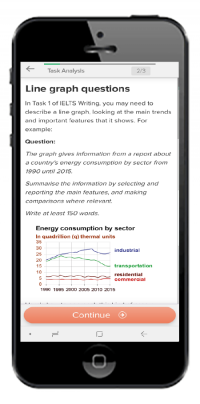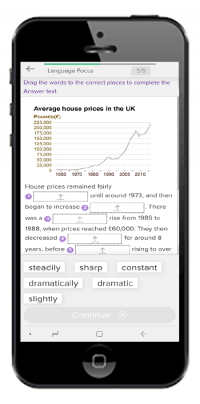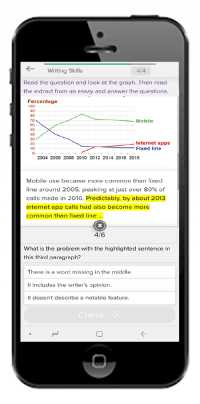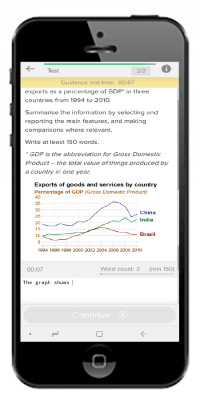
Level: CEFR A2 – B2 | IELTS 3 – 6 | TOEFL® iBT 32 – 45*
Number of Lessons: 15 at each level (Digital)
Lesson Duration: Approx. 60 mins
Key Content: IELTS Skill Areas – Organizing ideas; Structuring writing (Introductions, Overviews, Main Paragraphs); Sentence structure; Showing contrast; Linking information; Avoiding repetition; Checking your work
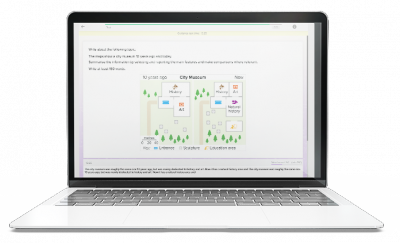
The lesson structure throughout the IELTS Writing courses follows a systematic flow from Task Analysis to Language Focus, to Writing Skills and to an end-of-lesson Test. Each level includes a variety of inputs for Writing Task 1 (charts, maps, process diagrams) and Writing Task 2 (opinion, problem solving, advantages and disadvantages).
The Language Focus sections present practice activities with key phrases, vocabulary, and specific grammatical structures that will help students produce better writing, with better range and accuracy to improve their scores.
Writing Skills sections are typically presented with an animated lecture which include tips on how to meet the criteria of the task, and practice with structure, cohesion and coherence.
In the test section, the student is given either a Task 1 report or a Task 2 essay to write within a suggested time limit. At the end, feedback is provided in the form of a model answer with specific features highlighted for students to compare their own writing against. Every lesson includes at least three complete models either as part of the practice cycle, or the test cycle.

